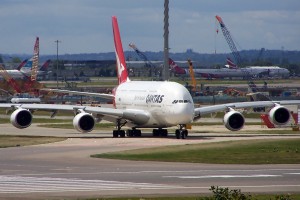
A fresh wave of strikes will hit Australia’s international airports from tomorrow (Wednesday 30th March) after the Community and Public Sector Union (CPSU) said it will resume industrial action it previously delayed following terrorist attacks in Brussels, Belgium last week.
The CPSU said on Tuesday afternoon that Border Force staff at the Department of Immigration and Border Protection as well as officers at the Department of Agriculture and Water Resources (DAWR), who deal with biosecurity, will impose “short rolling strikes at international airports and elsewhere.”
“Passengers may experience some delays when departing or arriving on international flights as a result of the rolling strikes by Border Force officers and over-screening work bans applied by DAWR staff,” a statement from the CPSU said.
However the union is insisting that “strict national security exemptions” will remain in place during the strikes, provisions the CPSU says have been in place throughout its industrial campaign.
The CPSU ditched previously planned strike action over the Easter long weekend – including a 24-hour strike planned by DIBP and DAWR officers for Easter Thursday – following a request by Prime Minister Malcolm Turnbull to hold off on stoppages “in response to the heightened anxiety of travellers at such a busy period in the wake of the Brussels attacks” the union said.
“We agreed to Prime Minister Malcolm Turnbull’s request last Wednesday to postpone these strikes in good faith, and conscious of the understandable concern of travellers on one of the busiest days of the year at airports in the wake of the awful events in Brussels,” said CPSU National Secretary Nadine Flood.
Ms Flood said the CPSU agreed with an acknowledgement last week by Mr Turnbull that the industrial action would not compromise national security.
But the agreement and compromise on maintaining national security is largely where any industrial consensus starts and ends.
“These workers remain angry and frustrated at the way they’ve been treated by this Government, with no-one listening to their concerns for their livelihoods and their families after two years of attacks on their rights and pay,” Ms Flood said.
“They strongly believe that this is the only way of getting the fair deal they deserve.”
The CPSU is also attempting to increase pressure on the Prime Minister to intervene directly in the two year-long industrial standoff, challenging Mr Turnbull to come up with a circuit breaker rather than relying on the hardball tactics of the previous Abbott government.
“The Prime Minister suggested we use ‘other means’ to resolve this dispute. Prime Minister Turnbull now has a responsibility to provide that means. Giving someone the job of actually talking to us would be a start, given the Government has refused to meet with us since October last year,” Ms Flood said.
However behind that rhetoric is a growing view among many public servants that the industrial result is unlikely to be resolved before what is shaping up to be a 2nd July double dissolution election, an event that would reset negotiations irrespective of who wins the poll.
The Australian Public Service Commission is also still to advise whether Enterprise Agreements can be signed off during the caretaker period immediately before an election.
The most likely scenario, according to APS insiders, is that a re-elected Turnbull government would revisit the present highly constrained Bargaining Framework thrust upon agency chiefs by the Australian Public Service Commission, especially the scope of so-called productivity offsets.
In the event of a Labor election victory, the Bargaining Framework would likely be dumped in its entirety with the CPSU’s focus likely to be shifted to the loathed Efficiency Dividend.





Leave a Reply